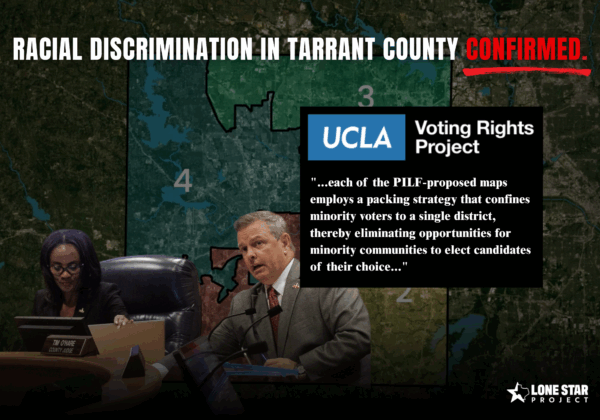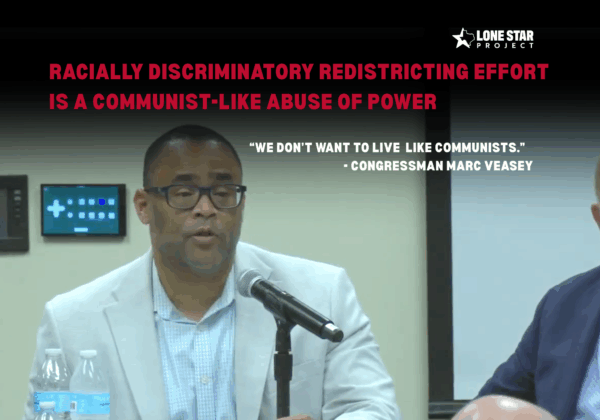In the brief, Davis, LULAC and other plaintiffs make an important legal point that Texas leaders should consider before taking action to alter SD10 or any other Senate district boundary – any change made by the Legislature or the courts to the Senate map will result in ALL 31 incumbent Senators standing for re-election in 2014. The key paragraph reads:
“There is also legal authority suggesting that if the State of Texas attempts to dismantle SD10 in 2013 and impose new districts in the Dallas-Fort Worth region or otherwise attempts to replace the interim plan with a new plan, then all 31 Texas senators must stand for re-election in 2014. See Armbrister v. Morales, 943 S.W. 2d 202 (1997).”
If the current map used in the 2012 elections remains unchanged as the Davis Plaintiffs argue, only 15 or 16 Senators would stand for re-election in 2014, and those would be determined randomly by a drawing. The others would have four year terms and an extra cycle to consolidate their support and head-off strong potential challengers. Any change, however, even if it is only to Senate District 10 and adjacent Senate districts, means all Senators would be forced to gear up for potential challenges.
No incumbent truly safe
The last election demonstrated that even an incumbent sitting in a district considered safe in the general election has no assurance of re-election. The 2012 primaries had plenty of examples of perceived safe incumbents losing primary elections – Jeff Wentworth in SD25, Silvestre Reyes in CD16, Sid Miller in HD59 to name just some.
GOP efforts may well backfire
Wendy Davis has won every key redistricting battle to date, and SD10 has now performed as a minority opportunity district two elections in a row. If there are efforts by Texas Republicans to change SD10 in 2013 and defeat Wendy Davis, it could well backfire on them. Ultimately, the Court could adopt a map that makes SD10 even more Democratic and Wendy Davis safe. Meanwhile all Republican incumbents will be up for re-election and facing political risks they otherwise would have avoided.


